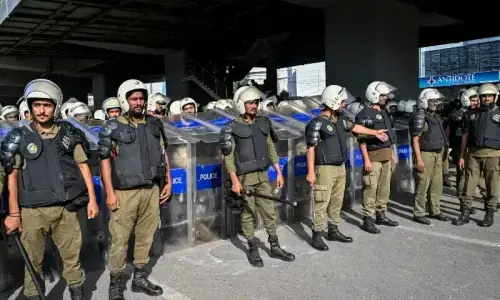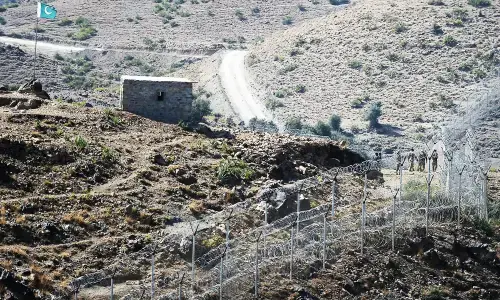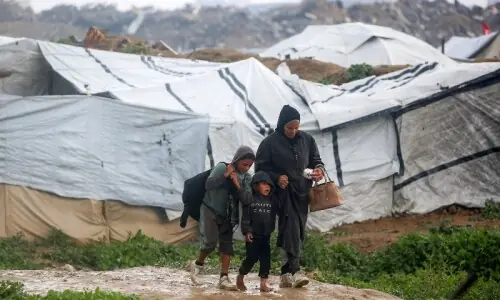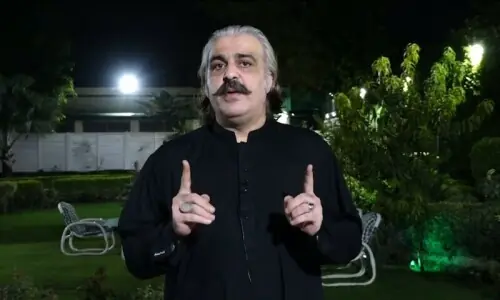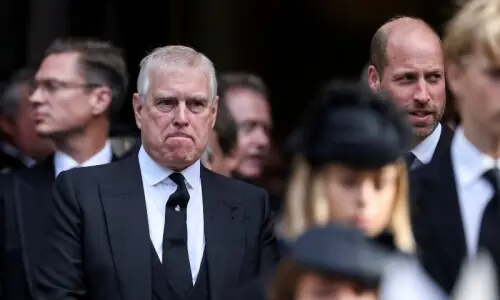Senegalese authorities on Friday deployed security forces around the capital Dakar, a day after an outburst of violence left nine people dead following the conviction of opposition politician Ousmane Sonko.
Clashes erupted on Thursday after Sonko, President Macky Sall’s fiercest opponent, was convicted for “corrupting” a young woman, in a case which has deeply divided Senegal, usually a bastion of stability in West Africa.
The ruling may disqualify Sonko from contesting next year’s presidential election.
On Friday, men in fatigues carrying rifles were stationed at various points in Dakar, where the streets were deserted and activity had virtually ground to a halt, AFP journalists observed.
AFP was not immediately able to identify which force they belonged to.
“While appealing for calm and serenity from our fellow citizens, the state of Senegal has taken all measures to guarantee the safety of people and property”, Interior Minister Antoine Diome declared overnight after one of the deadliest days of political protests for years.
On Thursday, shops and public facilities were ransacked and the motorway between Dakar and the international airport was overrun with demonstrators.
Young people clashed with security forces, with stones and tear gas being thrown.
The interior minister reported nine deaths on national television.
Shops remained closed on Friday along entire streets still bearing the scars of the previous day’s violence.
University damage
There was extensive destruction on the main university campus, where prolonged clashes took place on Thursday.
Students with suitcases lined the streets outside the university, struggling to find transportation after being told to leave campus.
The government acknowledged that it had restricted access to social networks such as Facebook, WhatsApp and Twitter in order to stop “the dissemination of hateful and subversive messages”.
Trouble was also reported on Thursday in Zinguinchor in the south, Mbour and Kaolack in the west and St Louis in the north.
Before Thursday’s violence, around twenty civilians had been killed since 2021 in disturbances largely linked to Sonko’s legal affairs.
Eligibility questions
Sonko rose to prominence in the presidential elections in 2019, coming third after a campaign that took aim at President Sall and the country’s ruling elite.
He was initially charged with rape and issuing death threats against a woman employee of a beauty salon where he said he received massages between 2020 and 2021.
However, the court acquitted him on these charges and convicted him for “debauching” a woman under the age of 21, without clarifying the immoral acts he is alleged to have committed.
Under the electoral code, the verdict would appear to render him ineligible for next year’s election.
Sonko has maintained his innocence and claims the president is manipulating the judiciary to torpedo his political career — a charge the government denies.
The politician was not in court when the ruling was handed down.
He was presumed to be in his Dakar home, where he has been blocked by security forces since the weekend. He alleges he is being “illegally held”.
The court did not rule on whether he should be arrested — which would further inflame tensions.
But, after two years of confrontation with the authorities, the head of the PASTEF-Patriots party could be arrested “at any time”, Justice Minister Ismaila Madior Fall told journalists.
Sonko, 48, is particularly popular among young people.
He rails against France, the former colonial power, and as a father of six and husband of two wives, presents himself as a defender of religion and traditional values. He has called for tougher penalties for same-sex relations.
Critics see Sonko as a rabble-rouser who has poisoned political discourse and sown instability.
Political tensions have also been stoked by Sall’s refusal to rule out running for a third term as president, a move his opponents say would be unconstitutional.












